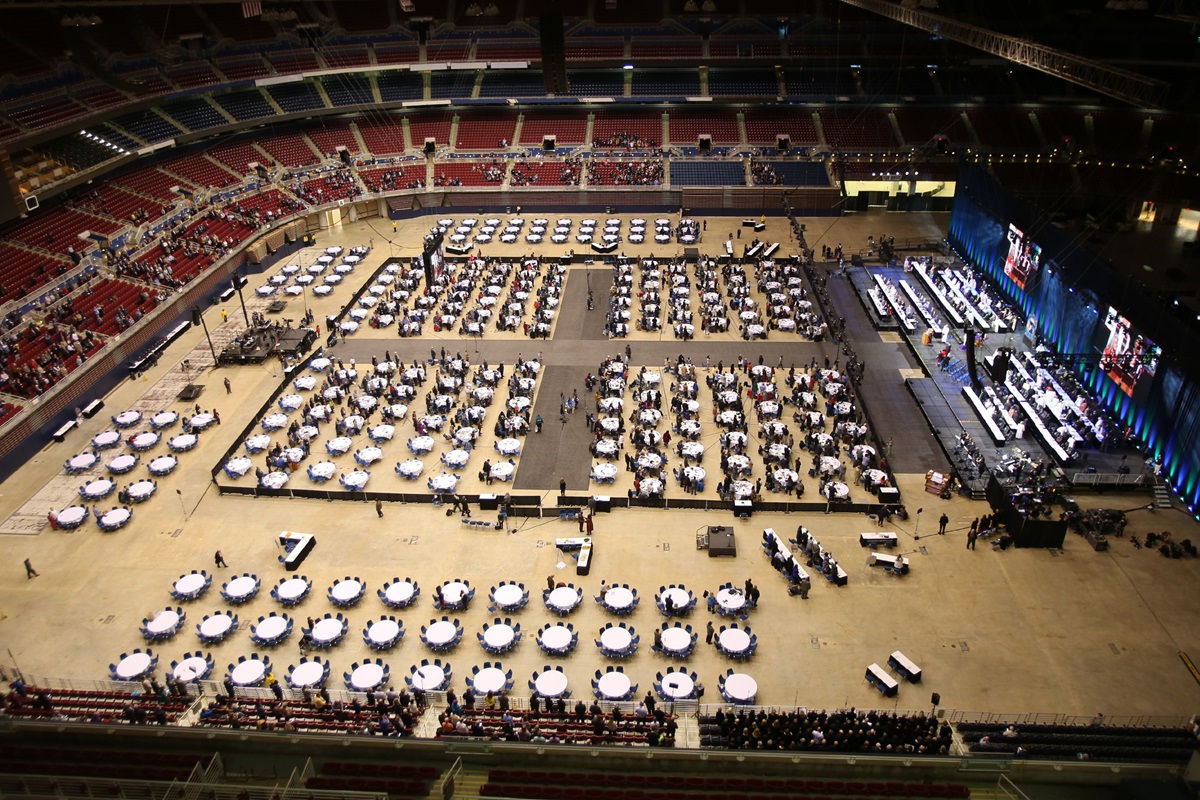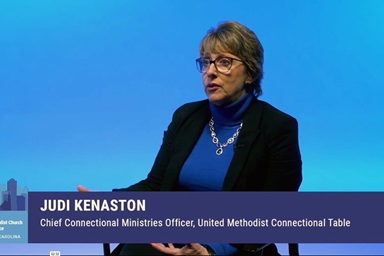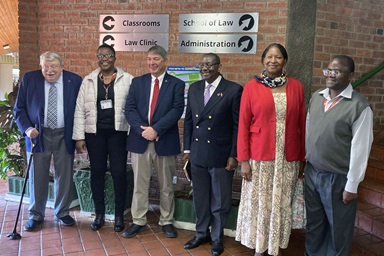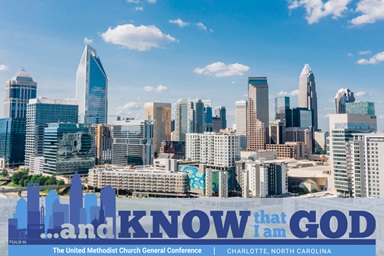Rulings by The United Methodist Church’s top court on General Conference 2019 action have some church members celebrating and some planning exit strategies.
Whatever happens next, it’s clear significant changes are coming to the 12.5-million-member denomination that just celebrated its 51st anniversary and remains deeply divided over the role of LGBTQ people in the church.
The Judicial Council ruled that parts of the Traditional Plan are in line with the denomination’s constitution and struck down other parts. The result is that a good portion of the plan that strengthens enforcement of church bans on same-sex marriage and “self-avowed practicing” gay clergy will be added to the Book of Discipline, the denomination’s policy book.
The church court, modifying an earlier decision, also upheld legislation that in effect suspends the denomination’s centuries-old trust clause and opens the way for congregations under certain conditions to leave with their property. The Judicial Council stressed that annual conference approval is among those conditions.
The church-disaffiliation legislation takes effect immediately in the U.S. The constitutional parts of the Traditional Plan will take effect on Jan. 1, 2020, in the United States. The Traditional Plan and other legislation passed at the special General Conference take effect 12 months after the 2020 General Conference in Africa, Europe and the Philippines.
What in the Traditional Plan is constitutional?
• A more specific definition of “self-avowed practicing homosexual,” to say it includes people “living in a same-sex marriage, domestic partnership or civil union or is a person who publicly states she or he is a practicing homosexual.”
• A ban on bishops consecrating gay bishops elected by a jurisdictional or central conference.
• Prohibitions on the recommendation or approval of clergy candidates who do not meet clergy qualifications, including those related to homosexuality. The prohibitions also now require bishops to rule any unqualified candidate out of order even if approved by the clergy session.
• A minimum penalty for clergy found guilty of performing a same-sex wedding — one year’s suspension without pay for the first offense and loss of credentials for the second.
• Requirements that bishops only dismiss a complaint against clergy if it has “no basis in law or fact” and that they share those reasons with the complainant.
• The requirement those filing a complaint be involved in any agreement to resolve the case without a church trial.
• The right of the church to appeal church trial findings “based on egregious errors of church law or administration.”
Both this and the ruling allowing church disaffiliation “are clear and sound and they give helpful guidance to the Church,” wrote Bishop Ken Carter, Council of Bishops president and leader of the Florida Conference.
Read Council of Bishops statement on the ruling
Read UMNews story on the Judicial Council rulings
“This is a significant step forward in restoring the accountability of our covenant,” said the Rev. Thomas Lambrecht, one of the primary authors of the Traditional Plan.
He is also the vice president of Good News, an unofficial advocacy group. He said the group and other members of the like-minded advocates plan to bring legislation to fix the constitutional problems and add other reforms to the 2020 General Conference.
“This clear ruling should help moderates and progressives realize that the decision of General Conference is not going to be changed in the near future,” Lambrecht said.
Among those thinking about next steps is the Rev. Tim Bruster, senior pastor of First United Methodist Church in Fort Worth, Texas. He is the General Conference delegate who made the motion for the Judicial Council review of the Traditional Plan, and had filed a brief urging the court to void the entire plan.
He said for many in his congregation, the Traditional Plan’s punitive measures are intolerable. He is among the church leaders who plan to discuss the denomination’s future at a May 20-22 meeting in Kansas.
“There are many people who are moderates and progressives who are trying to find a way forward,” he said. “I think for the vast majority of us, we don’t just want to disaffiliate. We have to have somewhere to go.”
In any case, he said, “it appears our differences are irreconcilable.”
The Rev. Alex da Silva Souto, an openly queer pastor, is a leader of UMForward, which is working on a fresh Methodist expression. That group will meet May 17-18 in Minneapolis.
“Progressives have been fighting for survival mechanisms and deploying creative forms of resistance for so long, but now many of our places of refuge have been taken away,” said da Silva Souto, who was also a General Conference delegate. “We are ready to begin thriving through God’s grace, rather than remain in survival mode.”
Ahead of General Conference 2019, the strongest calls for disaffiliation came from supporters of the Traditional Plan. The Wesleyan Covenant Association, an unofficial advocacy group, had made contingency plans to possibly form a new denomination if the rival One Church Plan had prevailed. That plan would have left questions of marriage up to individual churches and clergy, and ordination up to conferences.
Now the tables are turned. The Wesleyan Covenant Association, which represents 1,500 churches and 150,000 United Methodists, has no plans to leave.
However, the Revs. Keith Boyette, group president, and Jeff Greenway, chairman, say the group “remains eager to engage in good faith conversations with others with the goal of birthing new Methodist expressions as the best way to resolve our irreconcilable differences so that we might bless one another rather than being at war with one another.”
The Rev. Beth Ann Cook, the General Conference delegate who presented the revised version of the disaffiliation legislation ultimately adopted, said she would have felt compelled to leave if the One Church Plan prevailed. She sees the “gracious exit path” as a way of treating people as she would want to be treated.
The full implications for the denomination’s global connection remain unknown.
The Rev. Jerry P. Kulah, who leads the unofficial advocacy group Africa Initiative that championed the Traditional Plan, said he supports the disaffiliation for United Methodist churches and conferences that won’t abide by General Conference.
“The results of General Conference 2019 have given me much hope for a brighter future of the global United Methodist Church,” said Kulah, who was also a General Conference delegate from Liberia.
Betty Katiyo, a delegate from the Zimbabwe West Conference, said she also expects great days ahead.
“God is in charge, and both the Scriptures and the Book of Discipline have been upheld,” she said. “We now need to focus on applying the court's rulings as stated so that the denomination will focus on its mission as outlined.”
Audun Westad, a delegate from the Norway Conference, doesn’t see any reason to celebrate. He said the new enforcement mechanisms, specifically those aimed at clergy who officiate at same-sex unions, appear to violate labor laws in Norway.
“The Traditional Plan is really bad publicity,” he added. “We now belong to a denomination that is in opposition with the majority of the population when it comes to inclusiveness of LGBTQ people.”
David Field, a United Methodist in Switzerland, said even if some form of institutional division is inevitable, “we will be able to continue working together in mission.”
Still, there are United Methodists who at least for now plan to stay and resist the Traditional Plan.
Reconciling Ministries Network, an unofficial advocacy group that supports full equality of LGBTQ individuals, plans to resist actions taken by the 2019 General Conference, show up at the 2020 assembly and remain open to new possibilities for the church. The group represents 1,013 reconciling communities and 40,837 individuals.
“We believe there is still a place for LGBTQ Christians in the church. Indeed, the church needs LGBTQ Christians,” said Jan Lawrence, the group’s executive director.
Some of the denomination’s experience is playing out in the confirmation class at First United Methodist Church in Omaha, Nebraska.
On Sunday, the eight students who had completed their confirmation studies announced they were delaying their confirmation service, which would mark them officially becoming church members. They said they want to see how their local church, whose pastor supports LGBTQ equality, responds to General Conference.
“But until then, we will continue to stand up against unjust actions that the denomination is taking,” the students said in a letter to the congregation.
Hahn is a multimedia news reporter for United Methodist News Service. Eveline Chikwanah in Zimbabwe, E Julu Swen of Liberia and Sam Hodges of Dallas contributed to this story. Contact them at (615) 742-5470 or newsdesk@umcom.org. To read more United Methodist news, subscribe to the free Daily or Weekly Digests.
Like what you're reading? Support the ministry of UM News! Your support ensures the latest denominational news, dynamic stories and informative articles will continue to connect our global community. Make a tax-deductible donation at ResourceUMC.org/GiveUMCom.




